BACKGROUND IN SCRAPPING OF GSOMIA
입력 2019.08.23 (15:07)
수정 2019.08.23 (16:58)
읽어주기 기능은 크롬기반의
브라우저에서만 사용하실 수 있습니다.
[Anchor Lead]
The primary reason behind Seoul's decision to end the military intelligence sharing pact, was Japan's negative response to Korea's efforts to resolve bilateral issues in diplomatic ways. Cheong Wa Dae believes it has no more reason to maintain the agreement, as Japan's decision to remove Korea from its list of trusted trade partners has undermined the foundation of bilateral cooperation, in national security.
[Pkg]
Cheong Wa Dae says Korea has been trying to solve the ongoing conflict with Japan over the court ruling on wartime forced labor through dialogue and diplomatic efforts. However, Tokyo did not respond. Tokyo rejected Seoul's proposal to hold a summit back in June, and did not change its attitude even after two rounds of envoy dispatches and foreign ministers' meetings. Tokyo showed no official response to President Moon Jae-in's speech marking Independence Day, in which he called on Japan to solve bilateral issues through dialogue.
[Soundbite] PRES. MOON JAE-IN(SPEECH MARKING INDEPENDENCE DAY(AUG. 15)) : "If Japan agrees to dialogue and cooperation, we are willing to cooperate at anytime."
At the meeting between the foreign ministers of Korea and Japan a few days ago, South Korean Minister of Foreign Affairs Kang Kyung-wha demanded that Japan withdraw its decision to remove Korea from its whitelist. However, Japanese Foreign Minister Taro Kono insisted that the removal does not equate to economic retaliation.
[Soundbite] KANG KYUNG-WHA(S. KOREAN MINISTER OF FOREIGN AFFAIRS(AUG. 21)) : "(What did you discuss about GSOMIA?) I have nothing to say."
As Japan refuses to back down for reasons cited as national security, the Korean government has decided to terminate the military intelligence sharing pact, because extending it will offer no benefits to Korea. Cheong Wa Dae stressed that even after terminating the GSOMIA pact, the foundation of peace alliance between South Korea and the United States will remain strong, and that Seoul closely discussed the issue with Washington before announcing its decision. Seoul added that it can handle national security issues around the Korean Peninsula by using its own intelligence assets and the assets of its alliance with the U.S., and pointed out that even before signing the GSOMIA pact, South Korea, Japan and the U.S. had already been exchanging military intelligence.
The primary reason behind Seoul's decision to end the military intelligence sharing pact, was Japan's negative response to Korea's efforts to resolve bilateral issues in diplomatic ways. Cheong Wa Dae believes it has no more reason to maintain the agreement, as Japan's decision to remove Korea from its list of trusted trade partners has undermined the foundation of bilateral cooperation, in national security.
[Pkg]
Cheong Wa Dae says Korea has been trying to solve the ongoing conflict with Japan over the court ruling on wartime forced labor through dialogue and diplomatic efforts. However, Tokyo did not respond. Tokyo rejected Seoul's proposal to hold a summit back in June, and did not change its attitude even after two rounds of envoy dispatches and foreign ministers' meetings. Tokyo showed no official response to President Moon Jae-in's speech marking Independence Day, in which he called on Japan to solve bilateral issues through dialogue.
[Soundbite] PRES. MOON JAE-IN(SPEECH MARKING INDEPENDENCE DAY(AUG. 15)) : "If Japan agrees to dialogue and cooperation, we are willing to cooperate at anytime."
At the meeting between the foreign ministers of Korea and Japan a few days ago, South Korean Minister of Foreign Affairs Kang Kyung-wha demanded that Japan withdraw its decision to remove Korea from its whitelist. However, Japanese Foreign Minister Taro Kono insisted that the removal does not equate to economic retaliation.
[Soundbite] KANG KYUNG-WHA(S. KOREAN MINISTER OF FOREIGN AFFAIRS(AUG. 21)) : "(What did you discuss about GSOMIA?) I have nothing to say."
As Japan refuses to back down for reasons cited as national security, the Korean government has decided to terminate the military intelligence sharing pact, because extending it will offer no benefits to Korea. Cheong Wa Dae stressed that even after terminating the GSOMIA pact, the foundation of peace alliance between South Korea and the United States will remain strong, and that Seoul closely discussed the issue with Washington before announcing its decision. Seoul added that it can handle national security issues around the Korean Peninsula by using its own intelligence assets and the assets of its alliance with the U.S., and pointed out that even before signing the GSOMIA pact, South Korea, Japan and the U.S. had already been exchanging military intelligence.
■ 제보하기
▷ 카카오톡 : 'KBS제보' 검색, 채널 추가
▷ 전화 : 02-781-1234, 4444
▷ 이메일 : kbs1234@kbs.co.kr
▷ 유튜브, 네이버, 카카오에서도 KBS뉴스를 구독해주세요!
- BACKGROUND IN SCRAPPING OF GSOMIA
-
- 입력 2019-08-23 15:04:32
- 수정2019-08-23 16:58:38
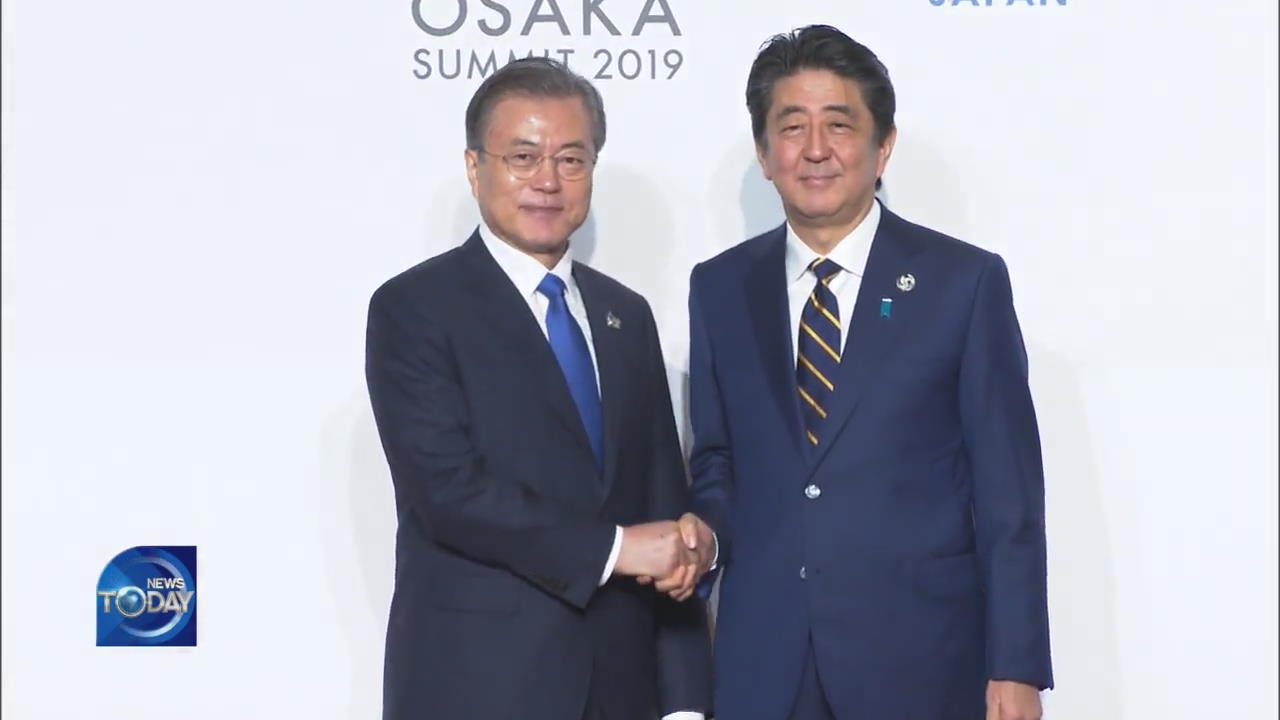
[Anchor Lead]
The primary reason behind Seoul's decision to end the military intelligence sharing pact, was Japan's negative response to Korea's efforts to resolve bilateral issues in diplomatic ways. Cheong Wa Dae believes it has no more reason to maintain the agreement, as Japan's decision to remove Korea from its list of trusted trade partners has undermined the foundation of bilateral cooperation, in national security.
[Pkg]
Cheong Wa Dae says Korea has been trying to solve the ongoing conflict with Japan over the court ruling on wartime forced labor through dialogue and diplomatic efforts. However, Tokyo did not respond. Tokyo rejected Seoul's proposal to hold a summit back in June, and did not change its attitude even after two rounds of envoy dispatches and foreign ministers' meetings. Tokyo showed no official response to President Moon Jae-in's speech marking Independence Day, in which he called on Japan to solve bilateral issues through dialogue.
[Soundbite] PRES. MOON JAE-IN(SPEECH MARKING INDEPENDENCE DAY(AUG. 15)) : "If Japan agrees to dialogue and cooperation, we are willing to cooperate at anytime."
At the meeting between the foreign ministers of Korea and Japan a few days ago, South Korean Minister of Foreign Affairs Kang Kyung-wha demanded that Japan withdraw its decision to remove Korea from its whitelist. However, Japanese Foreign Minister Taro Kono insisted that the removal does not equate to economic retaliation.
[Soundbite] KANG KYUNG-WHA(S. KOREAN MINISTER OF FOREIGN AFFAIRS(AUG. 21)) : "(What did you discuss about GSOMIA?) I have nothing to say."
As Japan refuses to back down for reasons cited as national security, the Korean government has decided to terminate the military intelligence sharing pact, because extending it will offer no benefits to Korea. Cheong Wa Dae stressed that even after terminating the GSOMIA pact, the foundation of peace alliance between South Korea and the United States will remain strong, and that Seoul closely discussed the issue with Washington before announcing its decision. Seoul added that it can handle national security issues around the Korean Peninsula by using its own intelligence assets and the assets of its alliance with the U.S., and pointed out that even before signing the GSOMIA pact, South Korea, Japan and the U.S. had already been exchanging military intelligence.
The primary reason behind Seoul's decision to end the military intelligence sharing pact, was Japan's negative response to Korea's efforts to resolve bilateral issues in diplomatic ways. Cheong Wa Dae believes it has no more reason to maintain the agreement, as Japan's decision to remove Korea from its list of trusted trade partners has undermined the foundation of bilateral cooperation, in national security.
[Pkg]
Cheong Wa Dae says Korea has been trying to solve the ongoing conflict with Japan over the court ruling on wartime forced labor through dialogue and diplomatic efforts. However, Tokyo did not respond. Tokyo rejected Seoul's proposal to hold a summit back in June, and did not change its attitude even after two rounds of envoy dispatches and foreign ministers' meetings. Tokyo showed no official response to President Moon Jae-in's speech marking Independence Day, in which he called on Japan to solve bilateral issues through dialogue.
[Soundbite] PRES. MOON JAE-IN(SPEECH MARKING INDEPENDENCE DAY(AUG. 15)) : "If Japan agrees to dialogue and cooperation, we are willing to cooperate at anytime."
At the meeting between the foreign ministers of Korea and Japan a few days ago, South Korean Minister of Foreign Affairs Kang Kyung-wha demanded that Japan withdraw its decision to remove Korea from its whitelist. However, Japanese Foreign Minister Taro Kono insisted that the removal does not equate to economic retaliation.
[Soundbite] KANG KYUNG-WHA(S. KOREAN MINISTER OF FOREIGN AFFAIRS(AUG. 21)) : "(What did you discuss about GSOMIA?) I have nothing to say."
As Japan refuses to back down for reasons cited as national security, the Korean government has decided to terminate the military intelligence sharing pact, because extending it will offer no benefits to Korea. Cheong Wa Dae stressed that even after terminating the GSOMIA pact, the foundation of peace alliance between South Korea and the United States will remain strong, and that Seoul closely discussed the issue with Washington before announcing its decision. Seoul added that it can handle national security issues around the Korean Peninsula by using its own intelligence assets and the assets of its alliance with the U.S., and pointed out that even before signing the GSOMIA pact, South Korea, Japan and the U.S. had already been exchanging military intelligence.
이 기사가 좋으셨다면
-
좋아요
0
-
응원해요
0
-
후속 원해요
0










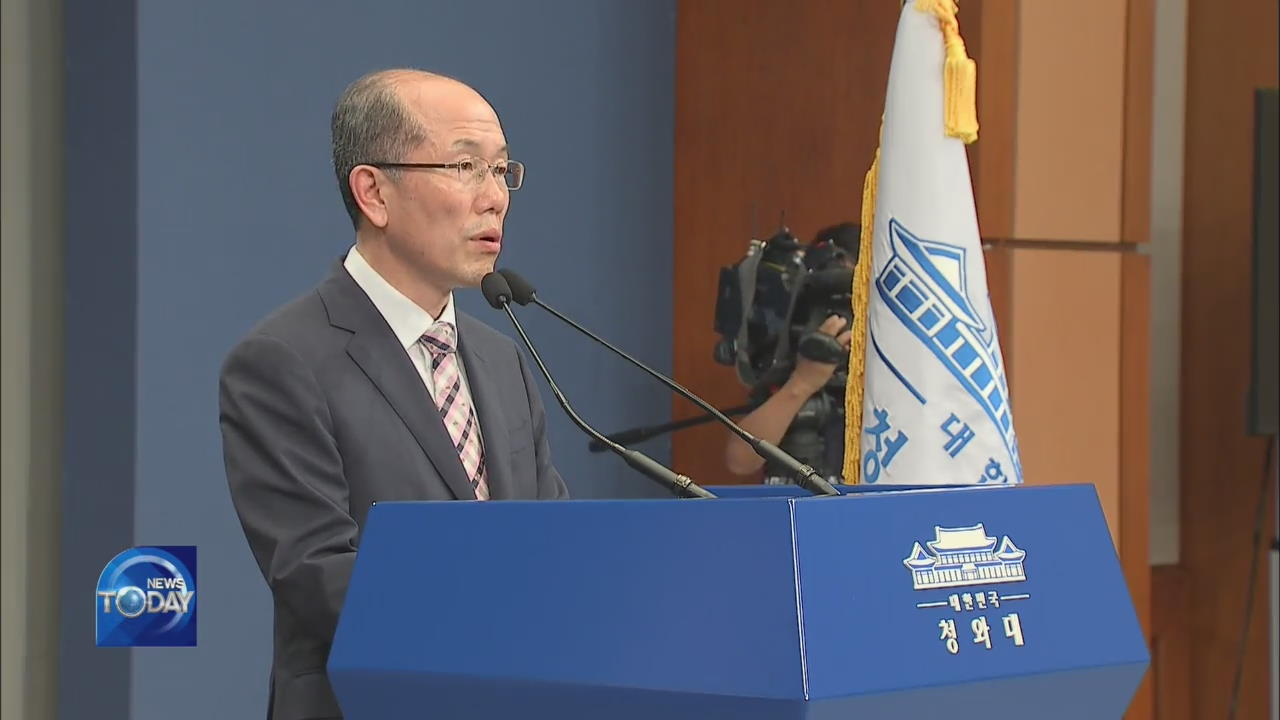
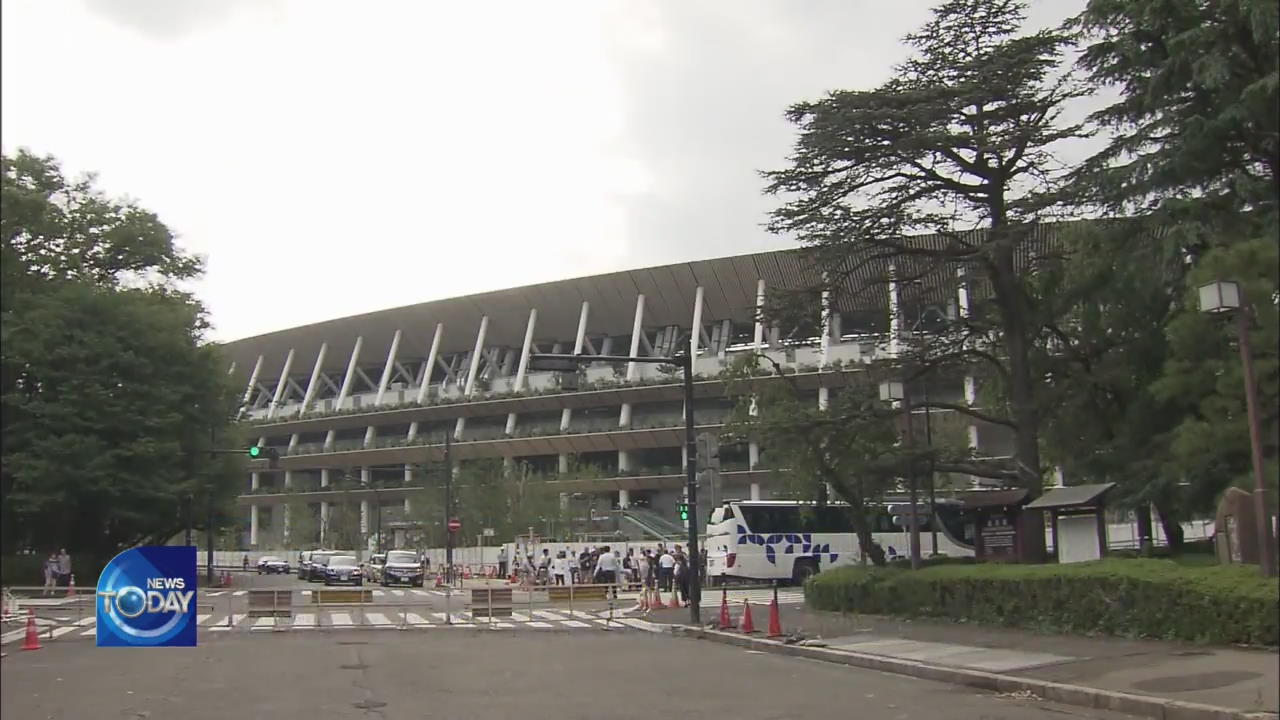
![[단독] 김민석 총리, 취임 첫 일정으로 ‘송미령 반대’ <br>농민단체 농성장 방문](/data/news/2025/07/03/20250703_YUTdgQ.png)
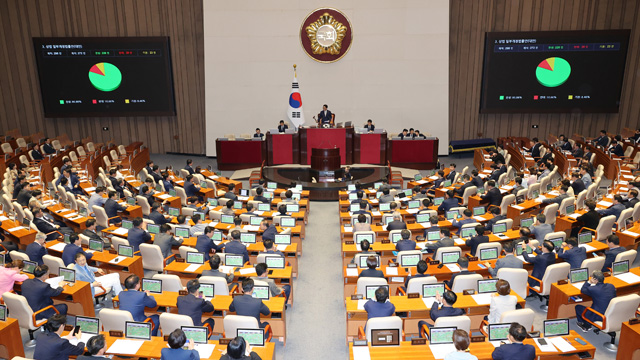
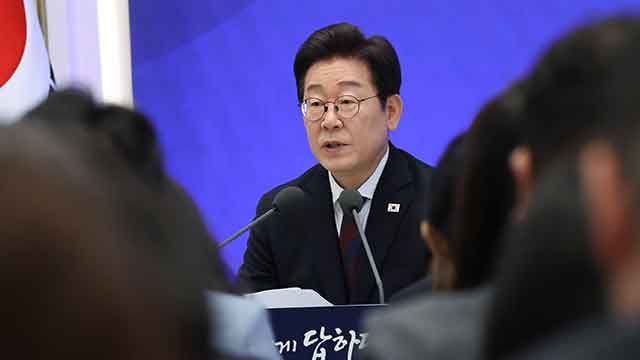
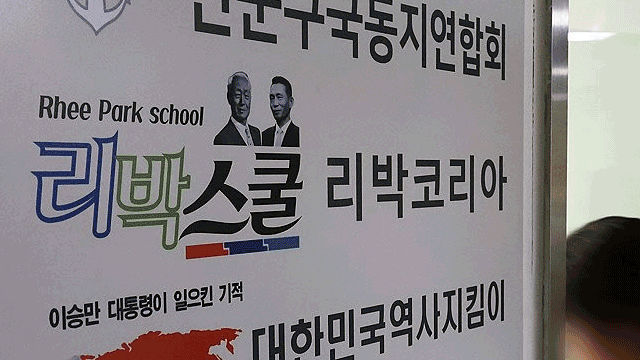

이 기사에 대한 의견을 남겨주세요.